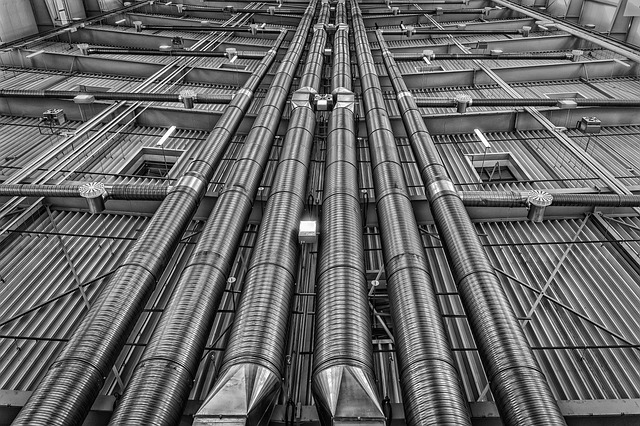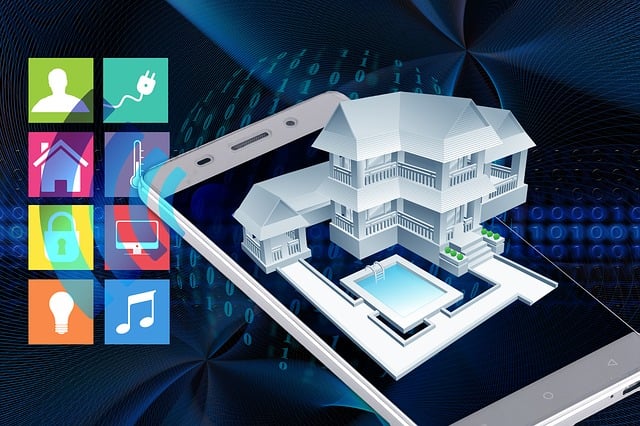Electric combination boilers (combi boilers) offer compact, tankless heating for residential homes, saving space and energy with on-demand hot water and precise temperature control. Integrating these systems with home automation via Zigbee, Z-Wave, or Matter standards enables remote control from smartphones, optimizing comfort and energy efficiency by reducing utility bills and environmental impact. Future trends include enhanced remote control and growing popularity of tankless electric boilers for both residential and commercial applications.
Electric combination boilers, a cutting-edge heating solution, are integrating with home automation systems, offering unprecedented control and efficiency. This article explores the benefits of this integration, from energy conservation to remote access. We delve into the technical aspects, ensuring compatibility and adherence to standards, and look at future trends in smart heating systems powered by electric combination boilers.
- Understanding Electric Combination Boilers
- Benefits of Home Automation Integration
- Technical Aspects: Compatibility and Standards
- Future Trends in Smart Heating Systems
Understanding Electric Combination Boilers

Electric combination boilers, also known as combi boilers or direct-heating water heaters, are compact, tankless electric central heating systems that seamlessly integrate with modern home automation. Unlike traditional boiler systems that rely on a separate hot water cylinder and storage tank, these innovative devices combine space heating and electric hot water heating into one streamlined unit. This not only saves valuable floor space but also enhances energy efficiency by providing instant hot water on demand.
Combination heating systems, such as electric combi boilers, are particularly well-suited for residential electric heating applications, offering precise temperature control and consistent performance. As energy-efficient boilers, they help reduce household energy consumption and lower utility bills. Their compact design, coupled with advanced features like smart connectivity, makes them a popular choice for both new construction and retrofits, ensuring comfortable and efficient living environments.
Benefits of Home Automation Integration

Integrating smart electric combination boilers with home automation systems offers numerous benefits that enhance both comfort and energy efficiency in residential settings. By seamlessly connecting these advanced heating systems to a home’s automation network, users can enjoy precise temperature control, allowing them to adjust settings remotely via smartphones or tablets. This level of convenience means folks can come home to a comfortably heated space, or even set temperatures while away to avoid energy wastage.
Moreover, the integration streamlines energy management by providing real-time monitoring and control over electric combi boilers, combination heating systems, and electric central heating. Homeowners can optimize their energy usage, reduce utility bills, and minimize environmental impact with tankless electric boilers, compact boiler systems, and efficient space heating systems. Electric HVAC boilers, in particular, offer the added advantage of instant hot water, further enhancing residential electric heating experiences.
Technical Aspects: Compatibility and Standards

The success of smart electric combination boilers integrating with home automation systems hinges on compatibility and adherence to established standards. These boilers, often referred to as tankless electric boilers or compact boiler systems, need to seamlessly connect with a variety of home devices and platforms for optimal control and functionality. Compatibility ensures that the electric combi boilers can communicate effectively with popular smart home hubs, voice assistants, and mobile applications, allowing users to manage their space heating systems and electric hot water heating from anywhere.
Standards play a crucial role in ensuring these advanced combination heating systems are safe, efficient, and reliable. Key standards and protocols like Zigbee, Z-Wave, or more recently, Matter, facilitate secure communication between devices. When implemented correctly, these technologies enable residential electric heating to be controlled and monitored remotely, enhancing energy efficiency and user experience. Moreover, adherence to industry standards guarantees that the electric central heating systems meet safety requirements and perform optimally over time, contributing to a comfortable and sustainable living environment.
Future Trends in Smart Heating Systems

As technology continues to evolve, future trends in smart heating systems promise even greater energy efficiency and convenience for homeowners. One notable trend is the increasing integration of electric combination boilers with home automation systems. These advanced boilers can be remotely controlled via smartphones or tablets, allowing users to adjust temperature settings from anywhere in the world, leading to significant energy savings through optimized usage patterns.
The shift towards tankless electric boilers, also known as compact boiler systems or electric HVAC boilers, is another emerging trend. Unlike traditional electric central heating systems that rely on storage tanks, these innovative solutions provide instant hot water and efficient space heating. By eliminating the need for large tanks, they reduce energy wastage and offer a more cost-effective and eco-friendly alternative, making them ideal for both residential and commercial applications.
Electric combination boilers, integrating seamlessly with home automation systems, represent a significant advancement in heating technology. By leveraging smart connectivity, these systems offer enhanced control, energy efficiency, and comfort for homeowners. As standards evolve and innovation persists, the future of smart heating looks promising, promising even greater integration and personalization. Adopting these technologies today positions folks for a more sustainable and intelligent home environment.
